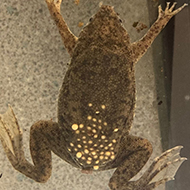Warmer springs may threaten pollination of crops.
A new study has shown that the warmer springs have caused British bees to wake up earlier, which may threaten the pollination of crops such as apples and pears.
The research has found that for every one degree Celsius rise in temperature, wild bees are emerging from their nests six-and-a-half days earlier on average.
As wild bees emerge earlier in the year, they could lose sync with the plants they need, resulting in there being less food for them to consume.
This could mean bees would not have enough energy to pollinate crops effectively, or miss crop blossoms completely.
The study, believed to be the largest of its kind in Great Britain, examined 88 species of wild bees across a period of 40 years to follow shifts in emergence dates over time and in relation to temperature.
The results revealed that the different species of bees responded differently to the changing temperature, with some bees emerging earlier than others. On average, every species is emerging four days earlier per decade.
The study was led by PhD researcher Chris Wyver, of University of Reading’s School of Agriculture, Policy and Development.
He said: “Rising temperatures are making life tougher for bees. Warmer conditions mean bees emerge from hibernation earlier, but there may not be enough food to provide energy for them when they start buzzing about.
“Matching wake-up dates with plant flowering is vital for newly emerged bees because they need to find pollen and nectar to increase their chances of survival and produce offspring. A mismatch means bees cannot pollinate effectively.
“Less natural pollination could lead to farmers needing to use managed honeybees, meaning greater costs, which may be passed on to consumers. We could see even more expensive apples, pears and vegetables in supermarkets as a result.”
The full study can be found in the Ecology and Evolution journal.







